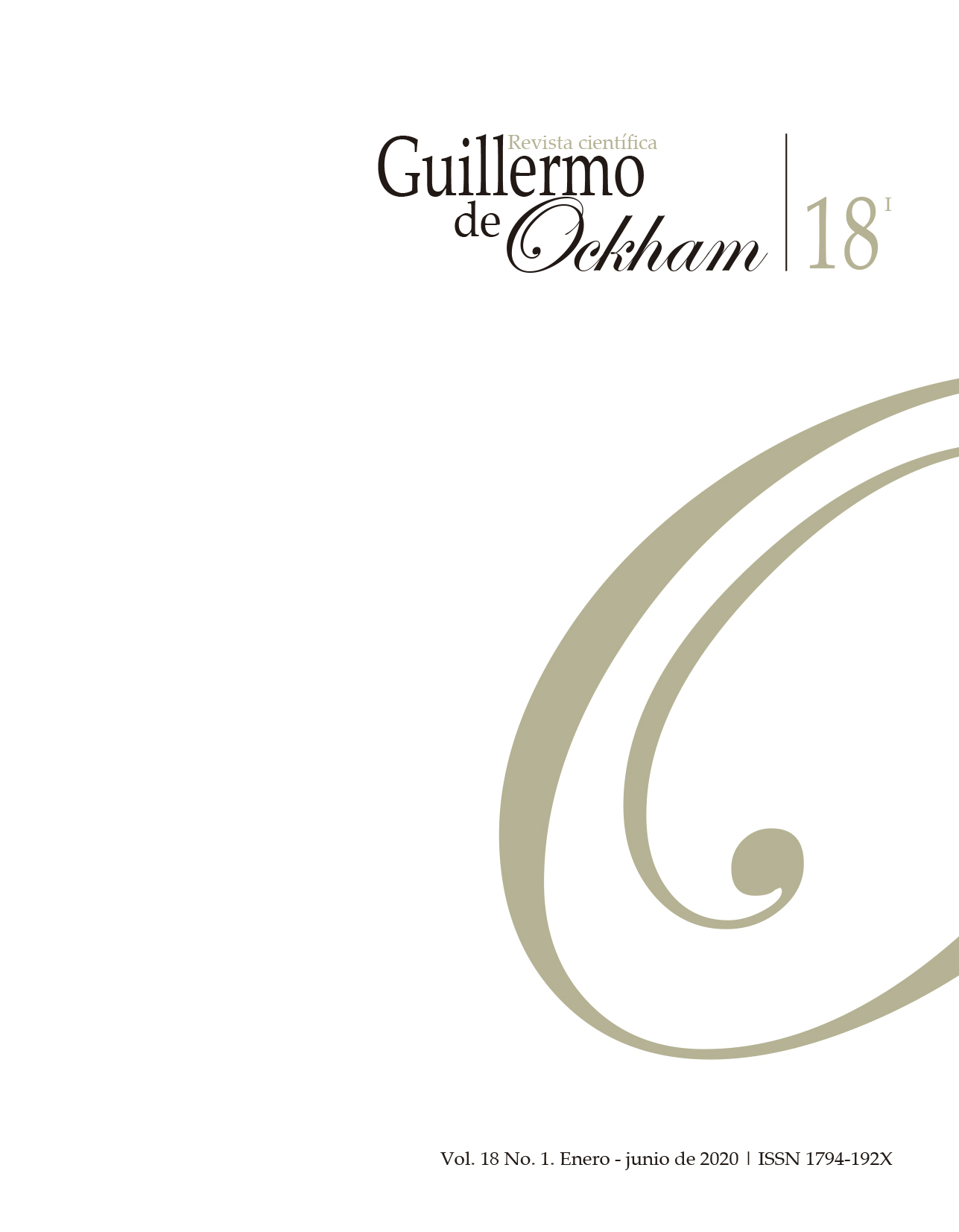The Revista Guillermo de Ockham provides an immediate and open access to its content, based on the principle of offering the public a free access to investigations to provide a global interchange of knowledge.
Unless otherwise established, the contents of this journal has a license with Creative Commons Attribution-NonCommercial-NoDerivatives 4.0 International (CC BY-NC-ND 4.0) http://creativecommons.org/licenses/by-nc-nd/4.0/
- Attribution: You must give appropriate credit, provide a link to the license, and indicate if changes were made. You may do so in any reasonable manner, but not in any way that suggests the licensor endorses you or your use.
- NonCommercial: You may not use the material for commercial purposes.
- NoDerivatives: If you remix, transform, or build upon the material, you may not distribute the modified material.
- No additional restrictions: You may not apply legal terms or technological measures that legally restrict others from doing anything the license permits.
Abstract
The analysis of moral judgments has been a subject of debate in philosophy throughout history, but it was retaken with greater emphasis in the 20th century with the approaches of Moore in his Principia Ethica and of Wittgenstein in his Lecture on Ethics. Perhaps this last author has been the most influential in the theories that support the impos-sibility of comparing moral statements with the statements of science, since they do not support a truthful analysis, which leads some theorists to assume erroneously that moral judgments are relative and impregnated with emotional subjectivity. By making an analysis of this position, it can be seen that these approaches have led subsequent theorists to take similar terms that are not similar. In part of the literature, these concepts are evidenced as objective and abso-lute synonyms; as well as relative and subjective, thereby incurring a confusion of conceptual order, which not only applies to the analysis of judgments, but goes beyond and oscillates between the ontological and epistemological at the time of talking about morality. This article aims to highlight conceptual problems in order to support that, contrary to what Wittgenstein outlined in his Lecture on Ethics, it is possible to achieve the objectivity of moral judgments without actually affirming their absoluteness.
Keywords:
References
Hume, D. (1986). A Treatise of Human Nature. Oxford: Clarendon Press.
Harman, G. (1977) The nature of morality. New York: Oxford University Press.
Lenin, V. (1975). Materialismo y empirio-criticismo. Montevideo: Ediciones Lenguas extranjeras Pekin.
Moore, G. (1982). Principia Ethica. Barcelona: Editorial Laia.
Thomson, G. (2002). Introducción a la práctica de la filosofía. Trad. Pablo Arango. Bogotá: Panamericana.
Searle, J. (1969). Speech Acts. An essay in the philosophy of language. Cambridge:
Cambridge at the University Press.
Searle, J. (1980). “Background and Meaning”. En: Searle, John, Kiefer, Ferenc y Bierwisch, Manfred. Speech Act Theory and Pragmatics. London: D. Reidel Publishing Company.
Searle, J. (1983). Intentionality. In Essay in the Philosphy of Mind. Cambridge: Harvard University Press.
Searle, J. (1995). The Construction of Social Reality. New York: The Free Press.
Searle, J. (2001). Rationality in Action. Cambridge: MIT Press.
Searle, J. (2010). Making the Social World. The Structure of Human Civilization. New York: Oxford University Press.
Searle, J. (1992). The Rediscovery of the Mind. Cambridge: MIT Press.
Wittgenstein, L. (2009). Conferencia sobre ética. Trad. Fina Birulés. En: Reguera, Isidoro ed.). Obra completa. Vol. 2: Diarios. Conferencias. Biblioteca de Grandes Pensadores. Madrid: Editorial Gredos.
































